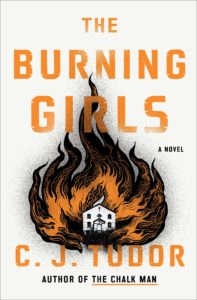A look at the month’s best reviewed crime novels, mysteries, and thrillers.

Abigail Dean, Girl A
(Viking)
“Girl A, Abigail Dean’s debut novel, shares a kinship with Emma Donoghue’s Room and Alice Sebold’s The Lovely Bones in its harrowing portrayal of trauma. Like those titles, Girl A is certain to rouse strong emotions. It is a haunting, powerful book, the mystery at its heart not who committed a crime, but how to carry on with life in its aftermath … I kept wanting to read Girl A as a fairy tale or parable, to cauterize some of the suffering in its pages, but Dean resists that impulse at every turn, always rooting Lex’s story in the real. Dean looks squarely at the sort of parents who humiliate their children, or hit them, or deny them food, and the consequences of such monstrousness … Dean tells this story with such nuance and humanity, you’re desperate to step into its pages. To help.”
–Flynn Berry, New York Times Book Review
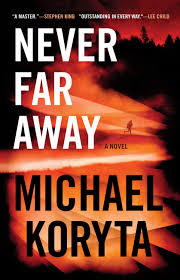
Michael Koryta, Never Far Away
(Little Brown)
“Cat-and-mouse tension peaks in a backcountry showdown fueled by well-placed twists. A must-read for fans of wilderness thrillers.”
–Christine Tran, Booklist

Walter Mosley, Blood Grove
(Mulholland)
“Mosley continues advancing the mystery genre with his novel Blood Grove … Mosley’s authorial superpower remains his razor-sharp perception. Through Rawlins, who operates from his corner of Los Angeles, Mosley speaks to the nation’s current ills, to the effect that Blood Grove feels more like Rawlins seeing into the future than Mosley writing about the past … This novel is more than a simple mystery meant for entertainment; it and its serial predecessors advocate for the Black hero in literature and in life … At a time when cities around the world are speaking out against the unjust treatment of Black and Brown people, particularly by police, Mosley astutely invokes the imagery of segregation during World War II and the some hundred cities burning during the unrest that ensued after King’s assassination. Rawlins survived it all … The words uttered by Mosley through Rawlins are a reminder that there will always be social justice work to be done and that not many will leave unscathed by the trauma – and he manages to do it without a soapbox.”
–Aaron Coats, Chicago Review of Books
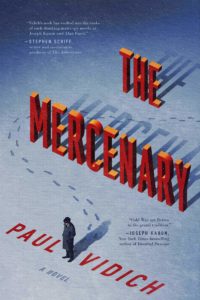
Paul Vidich, The Mercenary
(Pegasus)
“… a tense and pained study of the loneliness of spycraft, the toll of maintaining dual identities and the terror of living a life where everyone around you might secretly be playing the same game. Vidich’s Cold War echoes that of Alan Furst or even John le Carré, a shifting labyrinth of dangers both violent and existential … almost unbearably suspenseful. But Vidich’s tight plotting and focused, polished prose keeps The Mercenary…concise and quick moving, despite the complexity of the story. His attentiveness to the disorienting misery of undercover work, the divided loyalties and threats to identity, power the narrative rather than slow it down. His hero’s every interaction is fraught with danger that movie-style violent heroics would only make worse. Vidich dramatizes that dread and that humanity with elegance.”
–Alan Scherstuhl, Shelf Awareness
C.J. Tudor, The Burning Girls
(Ballantine)
“Fans of Gillian Flynn, Tana French, and Jess Lourey will leap at the chance to read Tudor’s new psychological thriller … Tudor is undeniably talented at producing a slow burn, weaving each piece of the story together to form a creepy yet satisfying conclusion. Jack is a relatable protagonist, stepping away from the stereotypical personality of a vicar by projecting a raw, yet still empathetic, exterior. Gruesome and haunting, The Burning Girls is worth every page turn. Readers will surely be eager for more.”
–Carmen Clark, Booklist
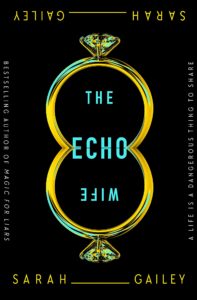
Sarah Gailey, The Echo Wife
(Tor Books)
“The Echo Wife is a thriller at heart, but it takes its time, building suspense gradually … From the snap of its dialogue to the torque of its twists, the story positively glows … Cooked right, science fiction and murder mysteries taste great together, and Gailey layers those ingredients together with a chef’s kiss.”
–Jason Heller, NPR
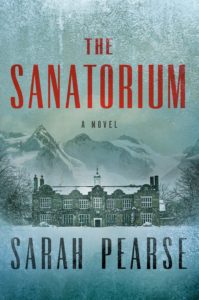
Sarah Pearse, The Sanatorium
(Pamela Dorman)
“The chief success of Sarah Pearse’s debut novel, The Sanatorium, is her use of place … There is a pleasing pressure-cooker feel to proceedings, reminiscent of Agatha Christie’s classic And Then There Were None. Pearse uses clever red herrings – secrets, pills, affairs, mental illness – and the stand-off scenes between Elin and the murderer are genuinely scary. The setting proves ideal: slippery outdoor swimming pools, floor-to-ceiling glass windows, the austere beauty of the glacial mountains, the shadows and low lighting of the posh hotel. Right from the beginning, in a claustrophobic scene in a mountain funicular, there is the sense of no escape.”
–Sarah Gilmartin, The Irish Times
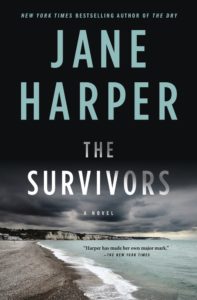
Jane Harper, The Survivors
(Flatiron Books)
“The latest stunner from Jane Harper hinges on the same premise as her 2017 debut, The Dry , but, instead of the arid outback, readers will find themselves on the raging coast of Tasmania … hat connection is also on view here, as Harper expertly raises the reader’s pulse throughout the narrative, insinuating what happened that day but only revealing the truth slowly as Kieran comes to see past and present in a new light.”
–Jane Murphy, Booklist
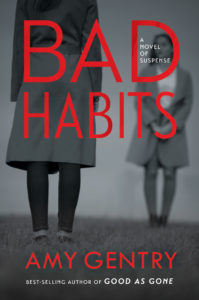
Amy Gentry, Bad Habits
(Houghton Mifflin)
“… so much fun to read that it feels like you’re cheating somehow. It’s got the perfect setting—a prestigious and pretentious grad school program ominously referred to as The Program, where students and professors misbehave outrageously. And the friendship at its heart detonates a series of double-crosses and revelations that are breathtaking and sometimes hilarious. How can one book be so unrelenting in its sense of unease, yet also so much fun?”
–Heather Speggel, Bookpage
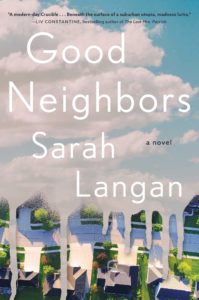
Sarah Langan, Good Neighbors
(Atria)
“Sarah Langan’s Good Neighbors is one of the creepiest, most unnerving deconstructions of American suburbia I’ve ever read. Langan cuts to the heart of upper middle class lives like a skilled surgeon and exposes the rotten realities behind manicured lawns and perfect families, and the result is horrifically plausible … Despite being mostly about upper middle class white Americans, Good Neighbors is anchored in otherness … Langan’s unflinching prose obliterates suburbia’s shiny veneer and makes Good Neighbors an uncomfortable read … This is a story about murder, but it’s also much more. This is narrative about childhood trauma and motherhood and how both shape people. Narratives about suburbia’s rotten core aren’t new, but Langan brings them into the present and pushes them into the future … You will read this and be enthralled, but you will never look at your neighbors the same way again.”
–Gabino Iglesias, NPR



